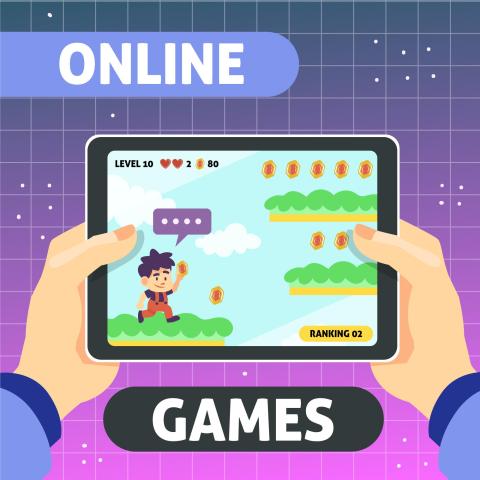The Stats Tell the Story. Is it time to dial down how much time we spend with our smartphones? Constant media usage has plunged our attention span from 12 seconds in 2000 to just 8 seconds today.1 The attention span of a goldfish is 9 seconds.2 Many children and youth are “awash” in media, spending more time with multiple units than any other activity besides sleeping.3 One millennial stated it this way: “I may be watching a game on TV, following another game using Twitter, texting friends on my phone, and doing one-click shopping on my tablet—all at the same time. I take in a lot of information, but it just doesn’t sink in.”
Adults and teens alike are losing sleep from following social media, answering emails, and texting at night. The blue light emanating from these electronic devices has a dark side. Nighttime exposure throws the body’s circadian rhythms and sleep out of whack. Some research links overexposure to diabetes, heart disease, obesity, and even some cancers.4
Passive vs. Active Learning
What are the long-term effects of so much media? Watching television and surfing the Internet do not actively challenge the brain. Neuroscientist Jeffrey Victoroff states: “Here’s where we come to the crucial point about mental stimulation and the brain: passive experience does little for the adult brain. To keep the brain learning and growing, we need to generate active responses to cognitive challenges.”5 Examples would include learning a musical instrument, reading mentally challenging material, or learning a new craft or skill.

Whatever time we spend with TV and video games is time NOT spent doing something else that may be more beneficial, such as outdoor recreation, reading, hobbies, or caring for a pet. This has an impact on learning, socialization, and health. Children and adults who spend the most time with media are less likely to get exercise and more likely to consume unhealthful snack foods and drinks.
Networking: How Much is Too Much? The wise use of media can educate, cultivate connections, and provide harmless entertainment. But uncontrolled media exposure is addicting. Every experience has to be highly entertaining and every problem quickly solved. The instant gratification of “likes” and LOLs cannot replace the social skills required for real relationships or job, school, and life satisfaction. These take time, perseverance, discipline, and focus.
Media communication alters how people interact—teens in the same room may text instead of talk to each other face-to-face. Texting instead of talking excludes facial expressions, tone, body language, and the nuances and empathy that text cannot display. The concern is that vital learning and social skills needed to ward off depression and stress are sacrificed at the expense of speedy information processing.

Television and the Neutral Brain. Neuroscientist Dr. Antonio Damasio’s research suggests that frequent exposure to violent news, television and video games numbs the emotions. He says that information and images are processed very rapidly by the brain—but their emotional meaning, or “tagging” takes seconds longer. “Events register faster and faster,” Damasio says, “and you’re not even given time to let them sink in. On the news, things are shown one after another. No matter how terrifying, images are shown so briefly that we have no time to sense emotionally the horror of a particular event.”6 The end effect is that the horrific scenes no longer evoke moral distress.
The danger of high-speed input, according to Damasio, is that “there will be more and more people who will have to rely on the cognitive system entirely, without using their emotional memory, in order to decide what’s good and what’s evil. They can be told about good and evil, but good and evil might not stick.”7
Entertained to Death
In his book, Still Bored in a Culture of Entertainment, psychiatrist Richard Winter compares today’s media entertainment with the days of neighborhood gatherings that consisted of getting together with neighbors, popping popcorn, and telling one another stories that kept important memories alive.
He adds: “When stimulation comes at us from every side, we reach a point where we cannot respond with much depth to anything. Bombarded with so much that is exciting and demands our attention, we tend to…shut down our attention to everything.”8 Os Guinness describes this state: “The flipside of consumerism is complacency. The most compulsive of shoppers and channel-surfers move from feeling good to feeling nothing.”9

Online Games. Parents lament that constant gaming is transforming their former peaceful children and teens into turbulent, moody strangers. Online games often use a mixture of novelty, reward, violence, and sex to rivet the attention of their players. The games are designed with built-in reward systems that lure players to spend hours achieving artificial goals. In reality, intensive gaming and excessive television viewing may affect three vital brain functions: (1) language, reading, and analytical-thinking; (2) information transfer between the two brain hemispheres; and (3) attention, organization, and motivation.10
Call to Action: Media Alternatives
One of the best ways to break media addiction is to resolve that being a bystander to life is more painful and empty than engaging in meaningful activities. Media brain lock can be broken. The pleasures of real life can overtake media-dominated overstimulation. Take fasts from media and devices. Get them out of sight—when with friends, make a pact to leave them alone.
Pleasure comes in many packages, including intellectual growth, positive social relationships, the development of skills and talents, creativity, responsibility, mental and physical health, and the joy of discovery. God created us to enjoy life, experience pleasure, form relationships, and develop our mental faculties to a height that surpasses any other creature. Real pleasure, success, happiness, and balance are possible. We can learn to cope with life, enjoy normal daily routines, achieve new successes, and develop meaningful social ties. This is not accomplished via satellite and cyberspace, but by engaging in active learning and relationships.

Unless noted otherwise, scripture taken from the New King James Version®. Copyright © 1982 by Thomas Nelson. Used by permission. All rights reserved.
Visit LifestyleMatters.com for more resources.
- https://www.thetreetop.com/statistics/average-human-attention-span
- Ibid.
- Trends in Media Use 2008;18(1):11-38.
- http://www.health.harvard.edu/staying-healthy/blue-light-has-a-dark-side.
- Victoroff J. Saving Your Brain. (New York, NY: Bantam Books, 2002).
- Ibid.
- Ibid.
- Winter R. Still Bored in a Culture of Entertainment. (Downer’s Grove, IL: Inter Varsity Press, 2002) p. 36.
- Guinness O. The Call. (Nashville, TN: Word, 1998) p. 149.
- Healy J. Endangered Minds: Why Children Don’t Think and What We Can Do About It. (New York, NY: Simon and Schuster, 1999) p. 209.




